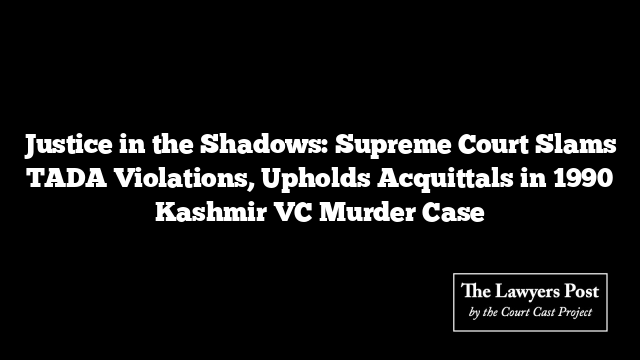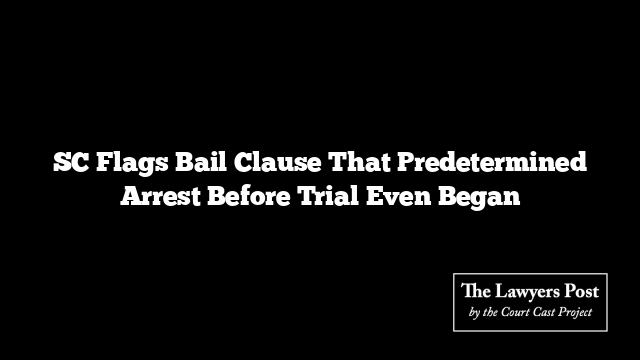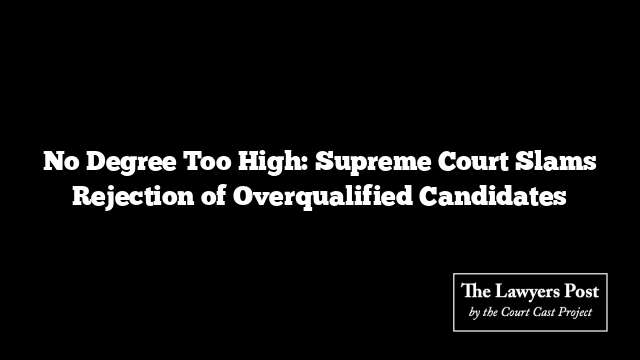In a scathing rebuke of investigative missteps and procedural decay, the Supreme Court has shut the door on the Central Bureau of Investigation’s bid to overturn the acquittals of seven men accused in the high-profile 1990 abduction and killing of Kashmir University’s Vice Chancellor and his personal secretary.
The top court not only upheld the Special Court’s acquittals but laid bare the disturbing gaps in the prosecution’s case—beginning with confessions that, according to the bench, collapsed under their own weight due to glaring violations of the Terrorism and Disruptive Activities (Prevention) Act, or TADA.
A bench comprising Justices Abhay S. Oka and Ujjal Bhuyan pulled no punches, observing that the confessional statements lacked timestamps, reflection periods, and details on the accused’s production before recording—fundamental oversights that rendered the process suspect. “The procedural safeguards were given a complete go-bye,” the bench remarked sharply.
The confessions—taken in intimidating environments like heavily guarded BSF camps—were, in the court’s view, recorded in atmospheres anything but “free.” Worse, there was no indication that the officers involved were properly authorized, nor were the statements first routed through the Chief Judicial Magistrate before reaching the Special Court, as legally required.
“The investigation and trial reflect a tragic mishandling, where neither truth for the victims nor justice for the accused emerged,” the court observed. The very foundation of the prosecution’s case, including critical forensic elements, was riddled with holes. The murder weapon—an AK-47—was never recovered. A forensic expert admitted he had not examined the actual rifle from which bullets were allegedly fired.
Eyewitness accounts didn’t fare any better. While the abductors were vaguely described as “young men with moustaches,” none of the accused were positively identified. The prosecution, the court concluded, had failed to connect the dots convincingly.
A Look Back: A Case That Shook Kashmir
In April 1990, Dr. Mushir-ul-Haq, Vice Chancellor of Kashmir University, and his personal secretary Abdul Gani Zargar were abducted in broad daylight just outside the university gates. Armed men, later identified as members of the Jammu & Kashmir Students Liberation Front (JKSLF), spirited them away to undisclosed locations, using multiple vehicles. The motive: secure the release of three imprisoned militants.
When negotiations failed, the hostages were allegedly executed with an AK-47. The case, initially handled by local police, was handed over to the CBI. Seven men were eventually charged under various sections of the Ranbir Penal Code and TADA.
But the confessions that formed the backbone of the prosecution’s case quickly crumbled in court. The Special Court rejected them, citing procedural non-compliance, and acquitted all seven accused. The CBI challenged those acquittals—but with little to show for it, as the Supreme Court saw through the flaws.
The agency’s lawyers argued that the statements were voluntary and made before a Superintendent of Police, as mandated by law. The respondents countered with proof that the accused were denied reflection time and that their statements were neither independent nor voluntary—arguments the Supreme Court found compelling.
In the end, the apex court dismissed the CBI’s appeals, letting the acquittals of Mohd Salim Zargar alias Fayaz, Mushtaq Ahmed Khan alias Pappan Thantre, Shabir Bhat, Abdul Aziz Dar, G.H. Qadir Mir, Mohd Sadiq Rather, and Tahir Ahmed Meer stand unchallenged.
The verdict closes a long and troubled chapter in Kashmir’s history—one where the rule of law, for once, refused to be overridden by the weight of flawed confessions and unchecked authority.





